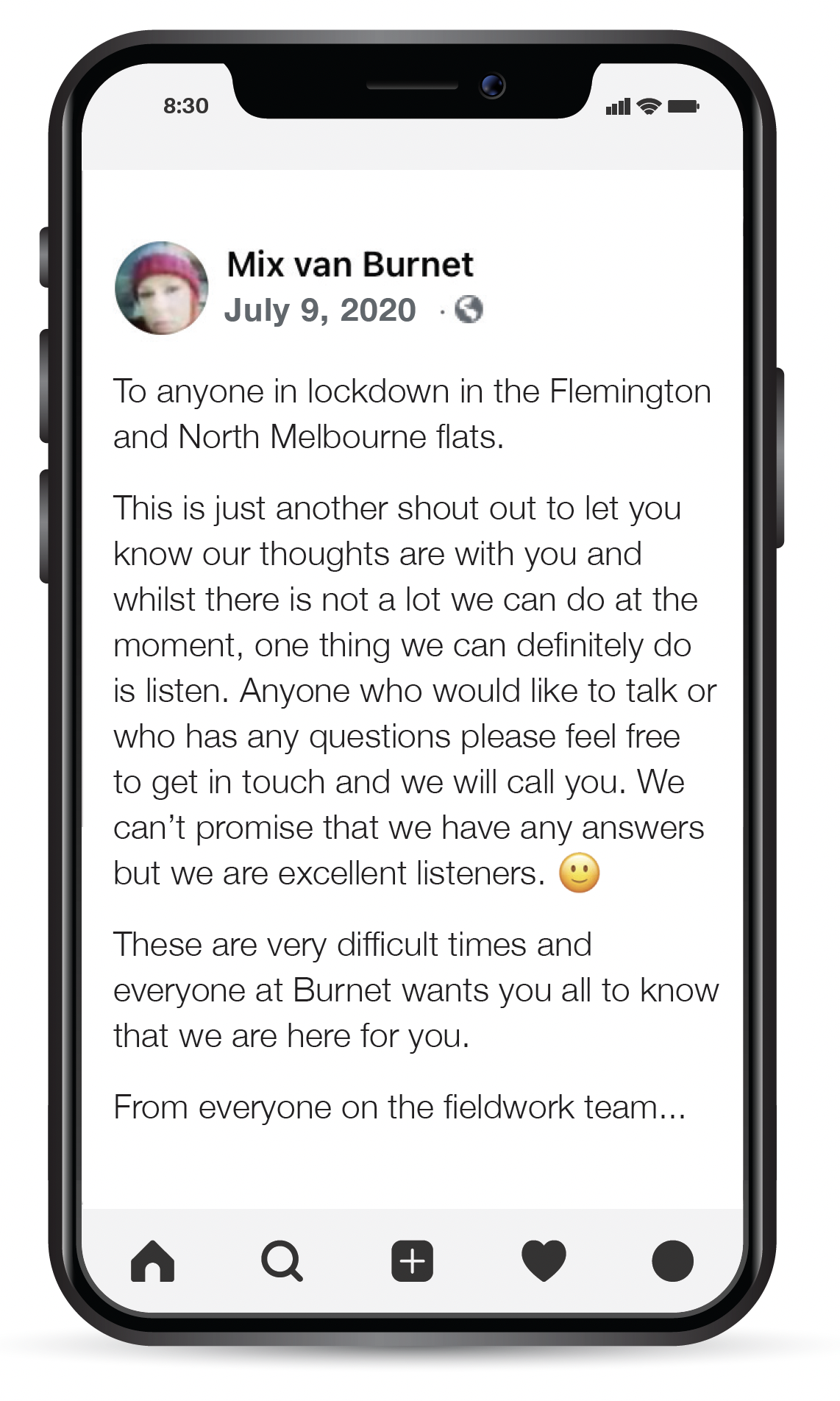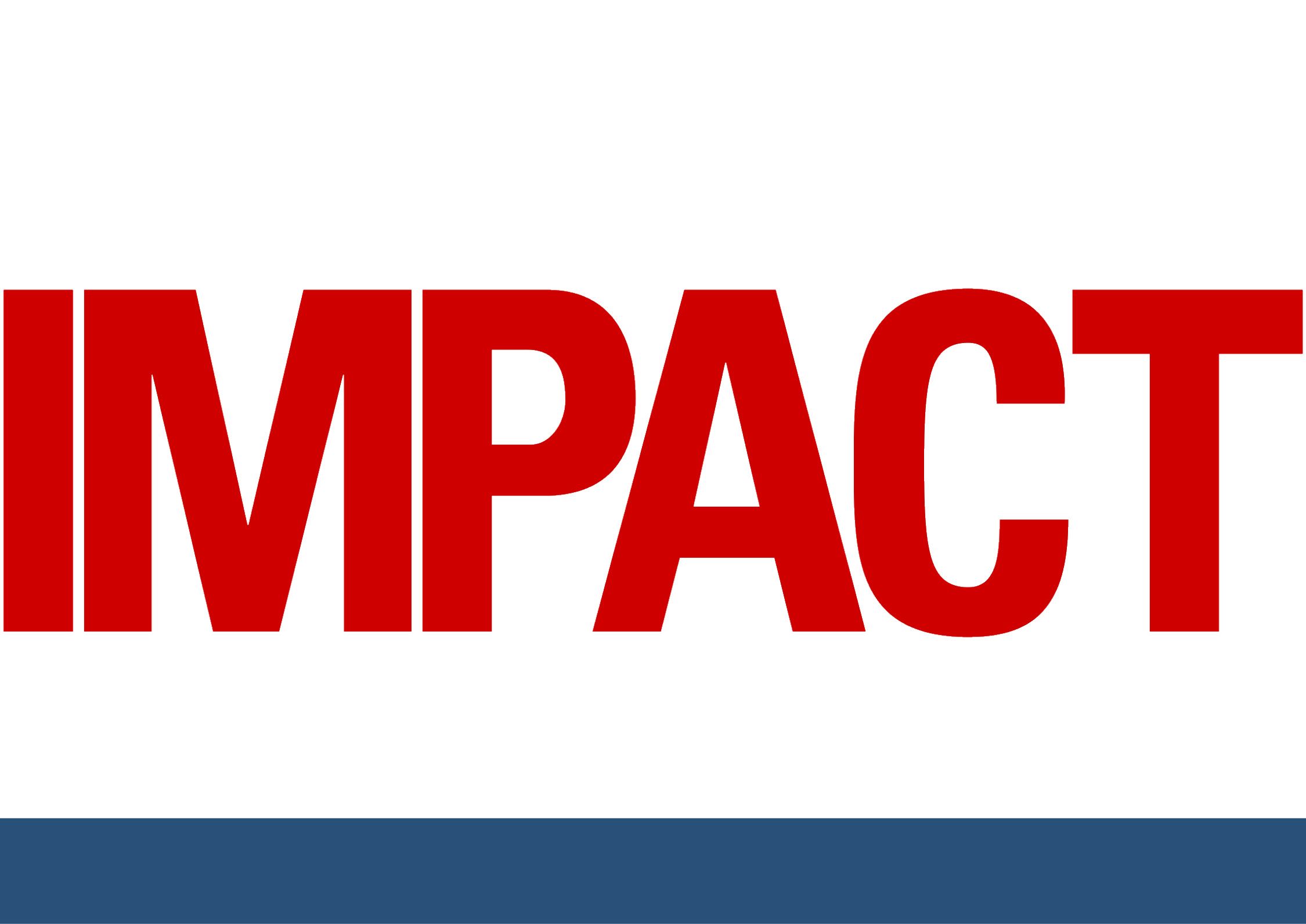The
SUPERMIX
Team

Connecting in COVID-times with people who inject drugs
With more than 1,300 participants, Burnet’s ongoing study – SuperMIX – is Australia’s largest and longest-running cohort study of people who inject drugs. Since 2008, SuperMIX has focused on participants’ drug use including periods of cessation and relapse to inform the design of new services and interventions. One of the SuperMIX fieldwork team, Associate Professor Peter Higgs, writes on the impact of the COVID-19 pandemic on the study, and how researchers and participants have been able to adapt to keep the study not just viable, but thriving.

In non-COVID times we have a fitted-out mobile office, a white van, that we take to health services around Melbourne that people who inject drugs are using. Our researchers go to the same spots every week, so there’s continuity and people realise the Burnet team is in the area today. Public health restrictions and lockdowns over the past 18 months have meant there are times when we can’t get into the field, and even when we can, people aren’t able to come out in the same way that they used to. That’s had a real impact. We were very busy for periods just reconnecting with people we hadn’t seen for a couple of years, and that opportunity and presence is really important. The interruptions have made us all appreciate the value of our field-based work.
Our participants stay engaged because they feel listened to. Some even refer to it as a kind of therapy session. We ask them about their health and some people use it to reflect on how life is actually going. Even though we’re not strictly counsellors or therapists, the trust the participants have in the workers is so important. We also work closely with primary care services that are targeted to that population.
Like so many parts of society, the COVID-19 pandemic has forced us to change how we work. We transitioned to connecting with people by Facebook and over the phone.
The SuperMIX Facebook page has over 500 people connected to it in an anonymous way so we can see them, but they can’t see each other. That’s been a crucial way to stay engaged because people can change their phone numbers or addresses, but their Facebook profile often stays the same. Opportunities to connect with people in that way have been really valuable.
We used Facebook pre-COVID-19, but we’ve upped the ante because we’ve had to rely on it so much more. We can stay connected in ways that we wouldn’t have previously. Some participants find it difficult to navigate that space, but others prefer to get a video call as their way of keeping in touch.
We did about 500 interviews in the first 12 months of COVID-19, mostly over the phone, and we’ve been trying to average 10 a week, but we do lose contact with some participants. It’s just a different way of staying connected.
“Having a really strong field presence for a number of years has been a big advantage for us and made the transition to online easier.”

It would have been very difficult to transition online without it. People know who we are, and they’ve got that trust. But we’re also discovering what a big commitment it takes. You need continuity, and to be responsive and timely. We’ve generated lots of momentum and goodwill, but I’m looking forward to when things open up again and we can work face-to-face with the study participants. When that happens, it won’t take long to ramp up again, but I’ll know that should we need them, we’ve got new ways to stay connected.
Find out more about the SuperMIX study at burnet.edu.au
You're reading IMPACT magazine | Subscribe today

Make an Impact | Donate Today
Please donate today. Your donation will enable us to focus on safe birthing in the time of COVID-19 to improve health outcomes for mothers and babies in Papua New Guinea.
Contact Us
If you would like to discuss this edition with our team please contact Tracy Parish.
E: communications@burnet.edu.au
T: +61 3 9282 2111
Where possible people who appear in images included in this publication were photographed with their permission. There is no implication that these people have any infectious diseases.
Stay across the latest from Burnet Institute
Subscribe to IMPACT magazine today
Discover the IMPACT of Burnet’s medical research breakthroughs and public health projects in the Institute’s bi-annual magazine.
